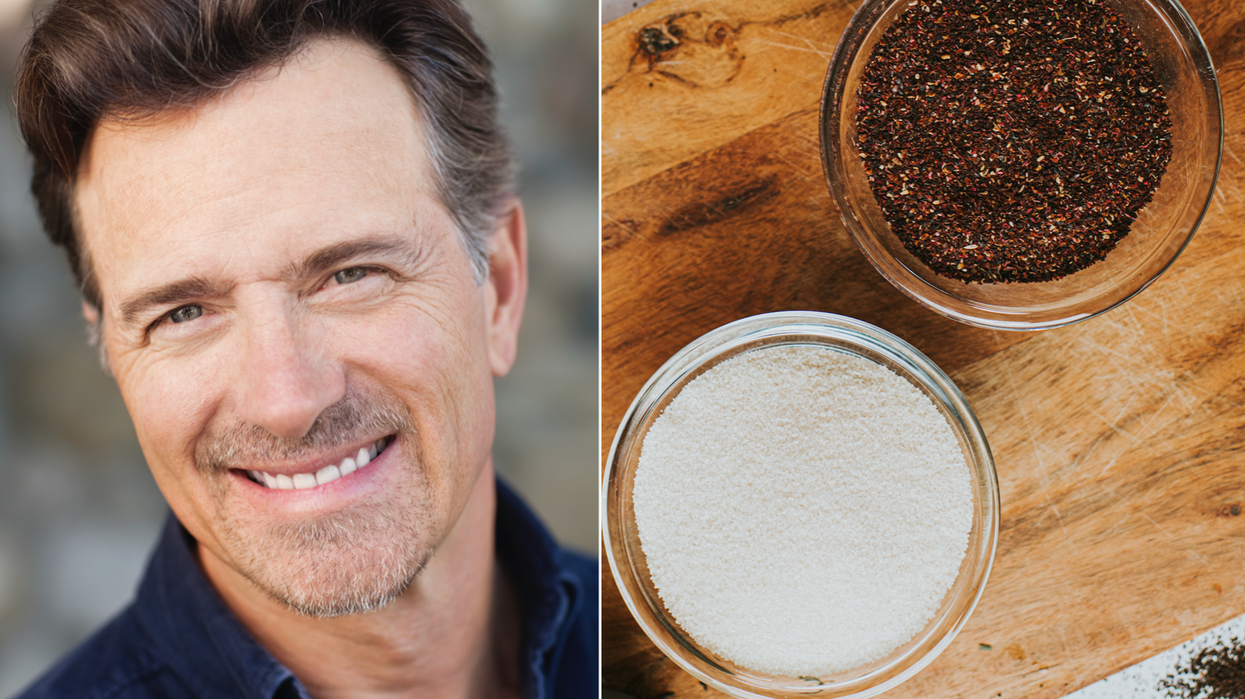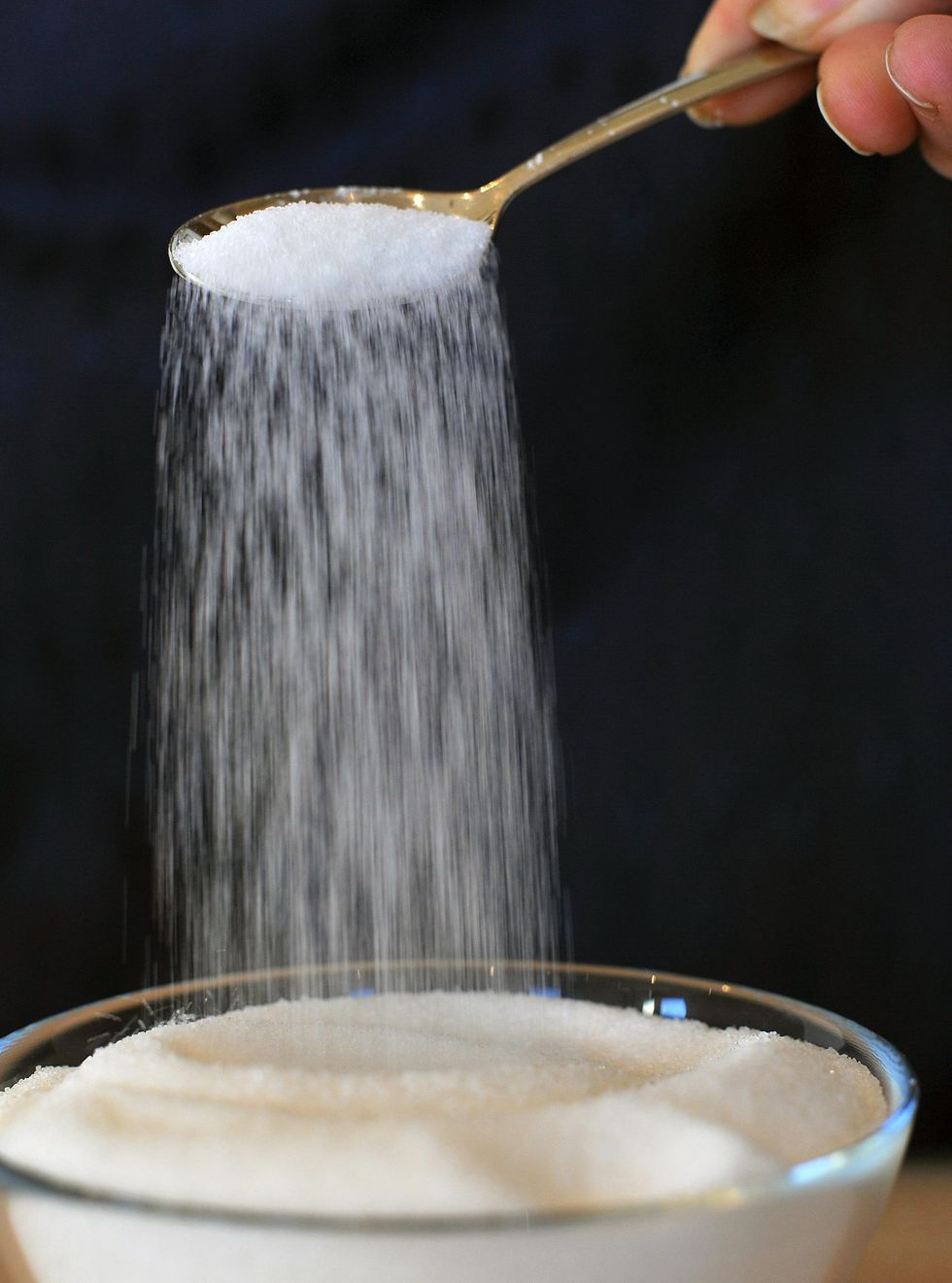Scientists find 18p ingredient could hold the key to reversing your age - and it is hiding in plain sight

A new study suggests cutting down on added sugar can reverse your biological age
|Getty Images

The key lies in having less not more of it, researchers say
Don't Miss
Most Read
Latest
Scientists may have discovered the elixir of life.
A new study suggests that a diet rich in vitamins and minerals, especially one without much added sugar, is linked to having a younger biological age at the cellular level.
The study is one of the first to show a link between added sugar and epigenetic ageing - a phenomenon in which biological age advances at a faster rate than a person's chronological age.
It is also the first to examine this link in a heterogenous group of women – both Black and white – in midlife. Most studies on the topic have involved older white participants.

Added sugar is found in processed foods and drinks. It also includes sugar you add to foods at home
|Getty Images
No added benefit
Added sugar is found in processed foods and drinks. It also includes sugar you add to foods at home. Added sugar provides little to no nutritional value.
Having too much of it can lead to weight gain and obesity. Being overweight or obese can increase the risk of diseases such as heart disease and type 2 diabetes.
Now, researchers have discovered a new way that it is detrimental to your health.
They looked at how three different measures of healthy eating affected an “epigenetic clock” – a biochemical test that can approximate both health and lifespan – and found that the better people ate, the younger their cells looked.
Even when people ate healthy diets, each gram of added sugar they consumed was associated with an increase in their epigenetic age.
How the researchers gathered their findings
For the cross-sectional study, researchers analysed food records from 342 Black and white women with a mean age of 39 years from Northern California. Then, they compared their diets with epigenetic clock measures, which were derived from saliva samples.
Researchers scored the women’s diets to see how they compared to a Mediterranean-style diet rich in anti-inflammatory and antioxidant foods and then to a diet linked to lower risk for chronic disease.
Finally, they scored the women’s diets against a measure they created called the “Epigenetic Nutrient Index (ENI)”, which is based on nutrients (not foods) that have been linked to anti-oxidative or anti-inflammatory processes and DNA maintenance and repair. These include Vitamins A, C, B12 and E, folate, selenium, magnesium, dietary fiber and isoflavones.
Adherence to any of the diets was significantly associated with lower epigenetic age, with the Mediterranean diet having the strongest association.
LATEST DEVELOPMENTS

Consuming foods with added sugar was associated with accelerated biological ageing
| PA IMAGESThe researchers examined sugar intake separately and found that consuming foods with added sugar was associated with accelerated biological ageing, even in the presence of an otherwise healthy diet.
The study, published in JAMA Network Open, helps deepen our understanding of why sugar is so detrimental to health, says study co-senior author Elissa Epel, a professor in the Department of Psychiatry and Behavioral Sciences at the UCSF Osher Center for Integrative Health.
“We knew that high levels of added sugars are linked to worsened metabolic health and early disease, possibly more than any other dietary factor,” Professor Epel said, adding: “Now we know that accelerated epigenetic ageing is underlying this relationship, and this is likely one of many ways that excessive sugar intake limits healthy longevity.”
Women in the study reported consuming an average of 61.5 grams of added sugar per day, though the range was large: from 2.7 to 316 grams of added sugar daily.
A bar of milk chocolate has about 25 grams of added sugar, while a 12-ounce can of cola has about 39 grams.
The finding should serve as a wake-up call to Britons. The UK Government recommends that sugar make up no more than five percent of our daily calorie intake.
On average in the UK we are consuming between nine percent and 12.5 percent of our calories from added sugars, depending on the age group. So, we are consuming a lot more sugar than is recommended.










